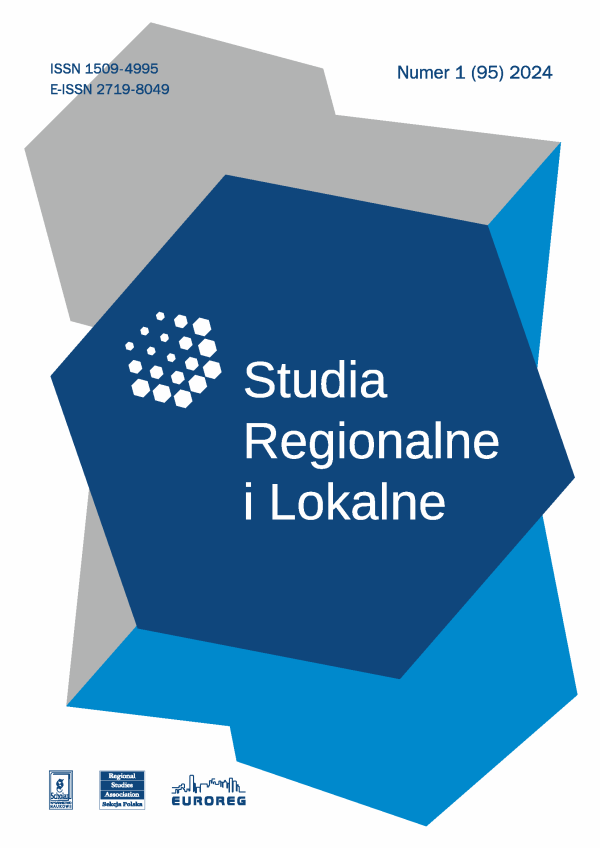Numer:
1(95)2024
Khrystyna Prytula, Ewa Łaźniewska, Anna Maksymenko, Yaroslava Kalat, Olha Demedyuk
Increasing Local Community Resilience in the EU-Ukraine Cross-Border Area
DOI: 10.7366/1509499519502
Increasing Local Community Resilience in the EU-Ukraine Cross-Border Area
Nowadays, the development of local communities is hindered by crises, external shocks, and disturbance. Under such circumstances, an important characteristic is their resilience, i.e. the ability to withstand negative external influences and ensure further growth. Border communities are particularly sensitive to external stresses stemming from geopolitical and economic changes. The article aims to identify key determinants and indicators of territorial community resilience in the EU-Ukraine cross-border area. The methodological foundations of the research comprise the main provision of economic theory, regional development, and spatial economy theory, etc. The methods of comparative, economic, and statistical analysis are used in the study of various dimensions of community resilience. The main results of the study of the peculiarities of socioeconomic development of Ukraine’s border communities and existing opportunities for the use of instruments of cross-border cooperation derive from a sociological survey based on the expert opinion method.
Afiliacja:
Khrystyna Prytula: State Institution “Institute of Regional Research named after M.I. Dolishniy of the NAS of Ukraine”, Sector of Cross-Border Cooperation, Kozelnytska str. 4, 79026 Lviv, Ukraine; ORCID: 0000-0003-3846-2393;
khrystynka.prytula@gmail.com Ewa Łaźniewska: Poznań University of Economics and Business, Department of Business Activity and Economic Policy, al. Niepodległości 10, 61-875 Poznań, Poland; ORCID: 0000-0002-2784-2190;
ewa.lazniewska@ue.poznan.pl Anna Maksymenko: State Institution “Institute of Regional Research named after M.I. Dolishniy of the NAS of Ukraine”, Sector of Cross-Border Cooperation, Kozelnytska str. 4, 79026 Lviv, Ukraine; ORCID: 0000-0002-4014-6501;
annusja@gmail.com Yaroslava Kalat: State Institution “Institute of Regional Research named after M.I. Dolishniy of the NAS of Ukraine”, Sector of Cross-Border Cooperation, Kozelnytska str. 4, 79026 Lviv, Ukraine; ORCID: 0000-0003-0390-6986;
syaya@ukr.net Olha Demedyuk: State Institution “Institute of Regional Research named after M.I. Dolishniy of the NAS of Ukraine”, Sector of Cross-Border Cooperation, Kozelnytska str. 4, 79026 Lviv, Ukraine; ORCID: 0000-0002-1942-2161;
olya_demedyuk@ukr.net 


